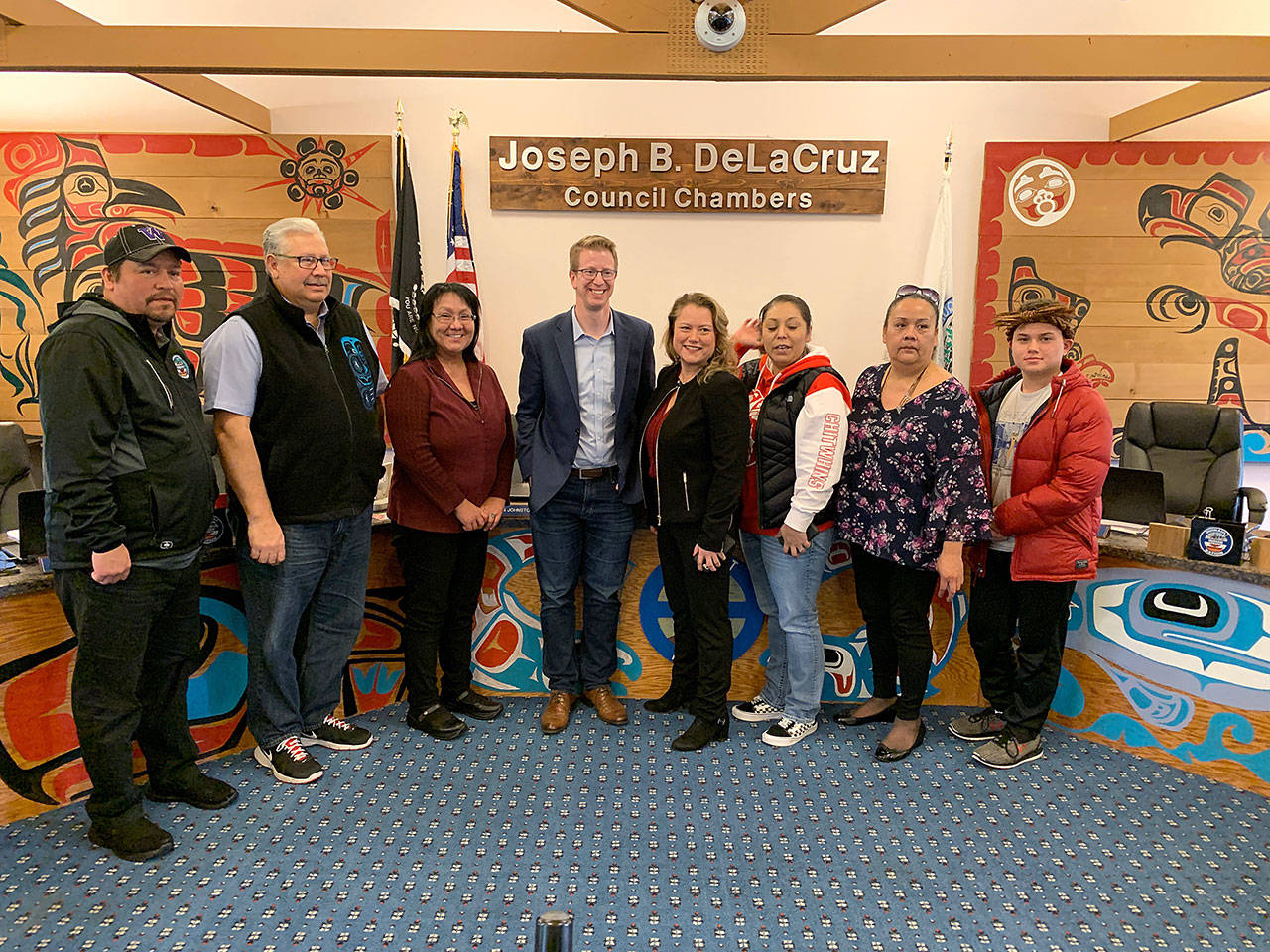The Quinault Indian Nation along with many other Northwest tribes were adversely affected over the past month by the federal government shutdown that has been lifted for now as negotiations over border security funding resume in Congress.
Quinault leaders discussed the impacts Friday in a meeting with U.S. Rep. Derek Kilmer, who was in Taholah at the time President Donald Trump announced he would authorize an end to the shutdown with a three-week deadline to form an agreement.
Quinault President Fawn Sharp told Kilmer the shutdown already has hurt the ability to complete timber sales or access fisheries disaster funding. “Some losses are going to be recovered, but there are some losses that are gone forever,” she said.
One pending timber sale was lost for the lack of an administrative signature right before Christmas, which Sharp said meant $1.4 million in lost revenue.
“We’ve heard from other tribes how the government shutdown affected access to health care,” Kilmer added. The Skokomish Tribe, he noted, found access to electronic health records and its patient management system slow to a crawl, with the technical team out on furlough with the shutdown. Another tribe had to cancel training at the police academy for three of its officers because the training center was closed during the shutdown.
“It is good news that the government shutdown is coming to an end,” Kilmer said. “But I think it’s safe to say that even when the government has been open, America hasn’t been living up to its obligation to tribal communities. And it was absolutely failing miserably with the government closed.” Kilmer added that in working with Sharp, he has requested that the U.S. Commission on Civil Rights continue to look into what he called the systemic and long-term “under-funding of programs government-wide that support Indian country.”
Issues that need to be addressed, Kilmer said, include health care, climate change, measures to deal with the threat of tsunamis for tribes on the coast, the lack of broadband service and other economic opportunities, as well as crime concerns.
“These are just a few of the ways the federal government has failed Native Americans,” Kilmer said.
Sharp noted that many tribes are the largest employers in their surrounding communities, and explained that they are “very dedicated to not only serving our citizens but the citizens in our region.”
The last few years have seen a “fisheries disaster” for the tribe, Sharp added, with a request approved for Congressional relief in the form of disaster assistance this January.
“When the government shut down, all of their hopes and thoughts of making their families whole with some financial relief around the holidays, it all disappeared indefinitely,” she noted.
Another problem occurred when a landslide cut off access to State Route 109 during a recent storm. “When I went to declare an emergency at Quinault, I wasn’t to contact FEMA because they were on furlough.” Kilmer, however, was able to help get the needed approval from the federal emergency agency.
“This government shutdown really highlights the magnitude of the problems that we’re facing, but we’re all committed to trying to find some solutions,” Sharp said.



